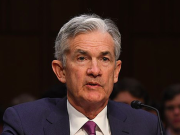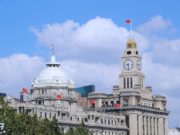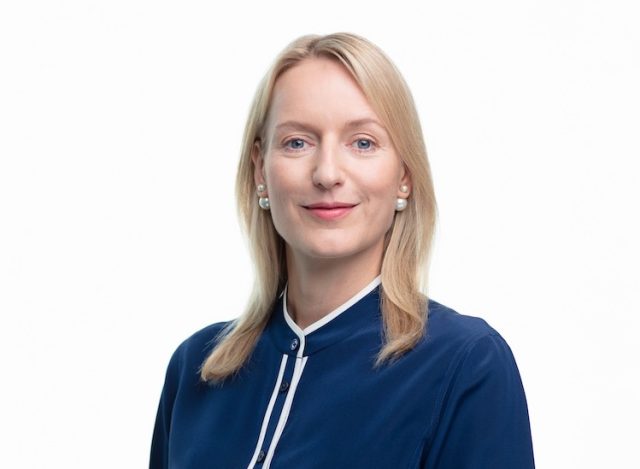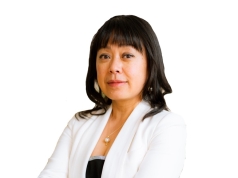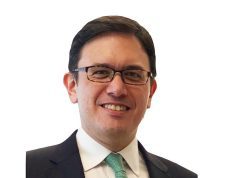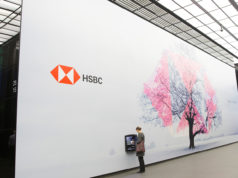The 2023 Investment Outlook: Stefanie Holtze-Jen Deutsche Private Bank Chief Investment Officer & Head of Discretionary Portfolio Management APAC
The 2023 Investment Outlook – Where do you invest $1 million, $10 million, $100 million or $1 billion? What is the investment outlook for 2023? Which are the new & biggest investment opportunities for 2023 & beyond? What are the biggest risks we are facing? What investments will perform better in a rising or high interest rate environment? Is interest rate forecast to remain high for a few years or only for 2023? If there is a recession, how should investors invest? How should investors also invest in this uncertain world (geo-politics, trade differences, disasters such as COVID-19)? Frauds & scams are also increasing. Governments are making policy changes & U-turns. It seems every few weeks, we have a shock. What should investors do?
- If you are a private investor, where do you invest $1 million, $10 million, $100 million in 2023?
- If you are a professional investor or institutional investor, where do you invest $10 million, $100 million or $1 billion in 2023?
We speak to leading Chief Investment Officers, Investment Managers and Portfolio Managers on their Investment Outlook for 2023. See below for interview with Stefanie Holtze-Jen, Chief Investment Officer and Head of Discretionary Portfolio Management of Deutsche Bank International Private Bank for APAC.
Stefanie Holtze-Jen, Deutsche Bank International Private Bank Chief Investment Officer & Head of Discretionary Portfolio Management APAC

Stefanie Holtze-Jen is the Chief Investment Officer and Head of Discretionary Portfolio Management of Deutsche Bank International Private Bank for APAC. She is responsible for all discretionary mandates such as multi-asset portfolios, fixed income portfolios and equity portfolios. Holtze-Jen is a member of the Singapore Foreign Exchange Committee under the Monetary Authority of Singapore. She was nominated and is serving as Co-Vice Chair of the Global Foreign Exchange Committee for a two-year term.
Deutsche Bank International Private Bank serves around 3.4 million clients, including private clients and SMEs in Italy, Spain, Belgium and India and wealth management clients in Germany, the rest of Europe, the Middle East and Africa, Asia Pacific and the Americas. Deutsche Bank Wealth Management manages around $297 billion AUM (2022 Q2, Assets under Management). Deutsche Bank is the leading bank in Germany with strong European roots and a global network.
Key Highlights – 2023 Investment Outlook
” Positive real yields mean equities are no longer the only option for investors “
- US & Europe – Policymakers, at least in the U.S. and Europe, now appear resigned to weaker economic growth in 2023. Any recessions are likely to be short lived, but they will not be painless.
- United States – Mild recession in H1 2023 could be expected which would lead to a pause in monetary policy tightening (U.S. GDP growth for 2023 at +0.4%).
- Eurozone – GDP growth to slow in 2023 to due to high energy prices reducing disposable income (GDP growth 0.3%)
- China – Forecast reopening to continue and expect GDP growth at +5.0% in 2023
- Financial Markets in 2023 – Slower economic growth in 2023 will not necessarily translate into weaker financial markets … … markets could prove more resilient in the coming year than they have been in 2022
- Fixed Income – The worst should now be over. Our 10-year U.S. Treasury yield forecast of 4.2% is driven by the expectation of an economic recovery after a mild recession in H1 2023.
- Corporate Bonds Investors – Will probably initially prefer liquid and investment-grade bonds from the U.S. and Europe in the months ahead, despite the return to attractive yields in most bond categories.
- Equities – Positive real yields mean equities are no longer the only option for investors. 2023 is likely to be an acceptable year for equities, but not a great one.
- Asian Equities – Asian markets remain the most attractive
- USD – More stable USD with the Fed likely future hiking programme probably now sufficiently priced in
- EUR – EUR could strengthen slightly over the course of the year (EURUSD forecast of 1.05)
- 2 Thematics – Energy Transition (greener sources of power), Infrastructure
Key Highlights – 2023 Top Investment Opportunities & Risks
“ Asian markets remain the most attractive “
- Liquid & investment-grade bonds – U.S. and Europe
- Active bond portfolio management – Floating rate bonds
- Commodity currencies – Expected global economic recovery in 2023 should benefit most commodities
- Commodity Countries – Australia, Canada and Norway
- Commodity Countries (Emerging Markets) – Brazil, Uruguay, Chile and Peru
- Sectors – Cyclical & cheaper in valuation such as Financials, materials (ex. chemicals) and energy stocks are trading at depressed valuation levels. Defensive healthcare stocks with above-average earnings growth supported by strong secular trends.
- Stock Selection – Companies with a strong price-setting power
- Regional – Europe equity valuation discounts in this region seems to be disproportionately high. Fiscal programmes and high levels of savings should buoy private consumption and expected stronger Chinese growth will be important to many European companies.
- Emerging Economies – Asian markets remain the most attractive. Capital flows to safe havens caused strong declines in valuations in northern Asian markets, such as South Korea, Taiwan and China in 2022. India and Japan could also outperform.
- Positive Alpha / Alternative Investments – Actively managed illiquid investment such as private equity, private debt (non-bank corporate financing), venture capital and infrastructure investments
- ESG – Reduce the risk of stranded assets (investments in sectors or companies that could lose substantial value due to regulatory restrictions or a switch to new renewable or other technologies.)
- Biggest Risks – Biggest risks to the economy and capital markets in 2023 come from the known-unknowns.
- Risks of known-unknowns – Familiar foes: geopolitics, the fight for global technology leadership, the Covid-19 pandemic, China real estate market and a potential sell-off in the bond market. But there will be important differences too as many of the topics from last year (2022) become more entrenched (and complex) and can sometimes lead to unprecedented outcomes.
- Inflation – Unlikely that inflation in the foreseeable future will return to the relatively low levels seen before the Covid-19 pandemic. High inflation is expected to last beyond 2023
- Top Picks with Rising Interest Rate – Floating rate bonds, Banking sector. Preference for European banks (both bonds & equities)
- Investing in Recession – Investing in a recessionary scenario can be challenging, as asset prices and economic activity tend to generally decline during a recession
- 5 Strategies to Invest in a Recession – Diversify your portfolio, Invest in defensive stocks, Invest in bonds and dividend stocks, Have a long-term perspective, Invest in cash
- 5 Advice for Investors – Equities (natural inflation hedge), Frequent portfolio adjustments, Traditional asset classes (along with alternative sources of risk), ESG Investments (Energy transition, social & governance factors), Stay wary of cautious investment strategies (eg. Situation – bond markets are affected by a fundamental downturn
The 2023 Investment Outlook with Stefanie Holtze-Jen, Deutsche Private Bank Chief Investment Officer & Head of Discretionary Portfolio Management APAC
1) What is the investment outlook for 2023?

Stefanie Holtze-Jen: Policymakers, at least in the U.S. and Europe, now appear resigned to weaker economic growth in 2023. Any recessions are likely to be short lived, but they will not be painless.
- In the U.S., we expect inflation to cool down but stay above Fed target of 2.0%. A mild recession in H1 2023 could be expected which would lead to a pause in monetary policy tightening (and no rate cuts as the market is priced for right now). We forecast U.S. GDP growth for 2023 at +0.4%, but there is a risk of a longer lasting recession amid high inflation and Fed tightening.
- Our base assumption is that energy prices will remain high, but gas storage levels in Germany are expected to be adequate in the current winter season. We forecast Eurozone GDP growth to slow in 2023 to due to high energy prices reducing disposable income and weighing on real private consumption. However, given extended fiscal stimulus showing the resolve of governments to buffer the negative economic effect of the commodity crisis, Eurozone’s growth for the year will still end up in the positive, at 0.3%
- In China, we forecast reopening to continue and expect GDP growth at +5.0% in 2023. Strong infrastructure investment, positive base effects and a pick-up in consumption are expected to support GDP growth.
” Slower economic growth in 2023 will not necessarily translate into weaker financial markets “

Stefanie Holtze-Jen: Slower economic growth in 2023 will not necessarily translate into weaker financial markets, however. In fact, markets could prove more resilient in the coming year than they have been in 2022.
Asset Class Outlook:
- Fixed income: Although more central bank rate hikes are in prospect, increases in longer-term government bond yields should be relatively modest from here on. The worst should now be over. For bond investors, yield and quality will no longer be a contradiction. Our 10-year U.S. Treasury yield forecast of 4.2% is driven by the expectation of an economic recovery after a mild recession in H1 2023. Looking at the Eurozone, we expect 10-year Bund yields at 2.4% at the end of 2023. Due to the ongoing risks, within corporate bonds investors will probably initially prefer liquid and investment-grade bonds from the U.S. and Europe in the months ahead, despite the return to attractive yields in most bond categories.
- Equities: More stable bond markets should, in turn, help lower equity market volatility. At the same time, positive real yields mean equities are no longer the only option for investors. 2023 is likely to be an acceptable year for equities, but not a great one. Our 2023 target for S&P 500 is 4,100. Positive returns will be driven by some modest price/earnings expansion and dividends – but earnings per share will be stagnant. In this calmer environment, relative regional valuations may become more important. Among the emerging economies, Asian markets remain the most attractive. Strong capital flows to “safe havens” caused marked declines in valuations in northern Asian markets, particularly, China – which may make a strong comeback in 2023 as global trends improve and domestic stimulus kicks in. At the same time, markets like India performed well despite volatility due to strong domestic momentum and can continue to do so.
- FX: 2023 could also see a more stable USD with the Fed’s likely future hiking programme probably now sufficiently priced in. In fact, the EUR could strengthen slightly over the course of the year (EURUSD forecast of 1.05), given our expectation that inflation will come down more slowly in the Eurozone than in the U.S.
- Thematic: An overarching concern, with major investment implications, will also be the environment. Limiting global temperature rises to 1.5 Celsius will involve major structural changes to the way we live. Investors should anticipate these changes and can, via ESG investment, help facilitate some of them. We highlight two of our long-term investment themes: the energy transition (to greener sources of power) and infrastructure. These, and our other long-term investment themes, are likely to provide major investment opportunities in the years ahead.
” Positive real yields mean equities are no longer the only option for investors “
2) Which are the new & biggest investment opportunities for 2023 & beyond? What are the biggest risks we are facing?

Stefanie Holtze-Jen: Our top investment opportunities for 2023 and beyond are the following:
” Active bond portfolio management remains the watchword in 2023 “
- Liquid & investment-grade bonds from the U.S. and Europe as yields and quality are now no longer mutually exclusive. European bank bonds, for example, would seem to be worth greater consideration because underlying capital adequacy and credit risk data have improved substantially in recent years.
- Active bond portfolio management remains the watchword in 2023, coupled with the dynamic management of maturities and default probabilities (i.e., ratings). Floating rate bonds – bonds with variable coupons – might be useful here in a rising interest rate environment.
- Commodity currencies: The expected global economic recovery in 2023 should benefit most commodities. In this context, as the U.S. Dollar turns around, the currencies of commodity-exporting countries such as Australia, Canada and Norway seem to have (catch-up) potential. Similarly, within Emerging markets, countries like Brazil, Uruguay, Chile and Peru: i.e., ones that are profiting from high commodity prices look good for FX exposure. South America’s central banks were also quick to start raising their base rates which supports their currencies.
- Sectors that are more cyclical and cheaper in valuation appear attractive to us. Financials, materials (ex. chemicals) and energy stocks in particular are trading at depressed valuation levels on a historical comparison. Investors wanting to position themselves more defensively may want to consider healthcare stocks. The sector offers above-average earnings growth supported by strong secular trends at a reasonable price.
- Stock selection: Stocks, unlike bonds, could show rising nominal returns during inflationary phases. In this case, it may be advisable to concentrate on companies with a strong price-setting power because they are likely to be able to pass rising costs on to consumers and thus sustain their margins in prolonged inflationary periods.
- In regional terms, one of the focus areas in 2023 will be Europe. Recent equity valuation discounts in this region seems to be disproportionately high, especially with economic and geopolitical risks already factored in. Extensive fiscal programmes and high levels of savings should buoy private consumption and expected stronger Chinese growth will be important to many European companies.
- Among the emerging economies, Asian markets remain the most attractive. Strong capital flows to “safe havens” caused strong declines in valuations in northern Asian markets, such as South Korea, Taiwan and China in 2022. The average drop in these equity markets was around 20%, a trend that has now been partly reversed. These markets may make a comeback when the macroeconomic environment and investor sentiment improves. Besides the beaten down Asian names, the likes of India and Japan could also outperform. India is currently expanding its manufacturing on a massive scale and launched a major infrastructure investment programme in early 2022 to encourage foreign company offshoots. The Japanese government is banking on comprehensive fiscal support to alleviate the energy crisis for its domestic businesses.
- Investors seeking a yield in excess of the market return (positive “alpha”) may want to investigate alternative investments. These include actively managed illiquid investment such as private equity, private debt (non-bank corporate financing), venture capital and infrastructure investments.
- An ESG strategy may under certain circumstances improve the portfolio risk/return and at the same time should facilitate the achievement of certain desired investment goals. Moreover, it may reduce the risk of stranded assets, i.e., investments in sectors or companies that could lose substantial value due to regulatory restrictions or a switch to new renewable or other technologies.
” Among the emerging economies, Asian markets remain the most attractive “
Stefanie Holtze-Jen on the Biggest Risks – We believe the biggest risks to the economy and capital markets in 2023 come from the ‘known-unknowns’. From a cursory glance, it might appear to be familiar foes: geopolitics, the fight for global technology leadership, the Covid-19 pandemic, China’s real estate market and a potential sell-off in the bond market. But there will be important differences too as many of the topics from last year (2022) become more entrenched (and complex) and can sometimes lead to unprecedented outcomes.
” the biggest risks to the economy and capital markets in 2023 come from the known-unknowns “
3) Generally, what investments will perform better in a rising or high interest rate environment? Is interest rate forecast to remain high for a few years or only for 2023?

Stefanie Holtze-Jen: Our top picks mentioned above are broadly selected for a rising or sustained high interest rate environment. We would lay specific emphasis on investments like floating rate bonds (bonds with variable coupons) and banking sector which do particularly well in rising interest rate environments. Within that we have a preference for European banks (both bonds and equities), given their underlying capital adequacy and credit risk data have improved substantially in recent years and assets trade at attractive valuations.
” Floating rate bonds, Banking sector. Preference for European banks (both bonds & equities) “
It is unlikely that inflation in the foreseeable future will return to the relatively low levels seen before the Covid-19 pandemic. High inflation is expected to last beyond 2023. For 2023, while headline inflation seems to have already peaked in the U.S., it might not peak in Germany and the Eurozone until February or March 2023. For the whole year, we expect inflation of 7.0% for Germany, 6.0% for the Eurozone and 4.1% for the U.S.
” unlikely that inflation in the foreseeable future will return to the relatively low levels seen before the Covid-19 pandemic “
4) If there is a recession, how should investors invest? How should investors also invest in this uncertain world (geo-politics, trade differences, disasters such as COVID-19)?

Stefanie Holtze-Jen: Investing in a recessionary scenario can be challenging, as asset prices and economic activity tend to generally decline during a recession. However, there are strategies that investors can use to potentially generate returns and manage risk in a recessionary environment.
” Investing in a recessionary scenario can be challenging, as asset prices and economic activity tend to generally decline during a recession “
- Diversify your portfolio: Diversification means spreading investments across different asset classes, such as stocks, bonds, and alternatives like real estate, venture capital, private equity and infrastructure. One should look at diversification across different industries and geographies as well. This can help to mitigate risk and smooth out returns over time.
- Invest in defensive stocks: Defensive stocks are companies that tend to perform well during economic downturns. They are companies that provide essential goods and services such as consumer staples, healthcare, and utilities. They tend to be less affected by economic downturns and can provide a more stable return.
- Invest in bonds and dividend stocks: Bonds and dividend stocks can provide a steady stream of income during a recession.
- Have a long-term perspective: It’s important to remember that the investing is a long-term game and short-term fluctuations are normal.
- Invest in cash: Cash can be a safe haven during a recession, especially when deposit rates are higher. Cash holds its value and can be used to take advantage of buying opportunities when stock prices decrease.
5) Frauds & scams are increasing. Governments are making policy changes & U-turns. It seems every few weeks, we have a shock. Any simple word of advice for investors?

Stefanie Holtze-Jen: Considerations for investors to keep in mind:
- Equities provide a natural inflation hedge via nominal earnings, keep it real.
- Frequent portfolio adjustments to rapidly changing macro factors are the need of the hour.
- Make use of traditional asset classes along with alternative sources of risk (and return).
- Energy transition is a key part of ESG investments and along with, social and governance factors, it can create massive new long-term investment opportunities for investors.
- Finally, investors should stay wary of the fact that pursuing cautious investment strategies does not necessarily lead to better results than a more aggressive, equity-focused approach, e.g., in a situation like present if bond markets are affected by a fundamental downturn.
” Equities provide a natural inflation hedge via nominal earnings “
Thank you Stefanie Holtze-Jen for sharing your valuable insights at The 2023 Investment Outlook. Stefanie Holtze-Jen is Chief Investment Officer & Head of Discretionary Portfolio Management APAC at Deutsche Bank International Private Bank based in Singapore.
2023 Investment Outlook:
- Citi Global Wealth Outlook 2023: Markets in 2023 Lead Recovery in 2024, Underweight Equities, Overweight Fixed Income, Opportunities for Loans in Private Markets, Equities +10%, Fixed Income +5.1%, Cash +3.4%, Hedge Funds +9.5%, Private Equity +18.6%, Real Estate +10.6%
- HSBC Private Bank Investment Outlook 2023: GDP to Grow 1.8% in 2023, Asia to Grow 4.5%, Interest Rates at 5% in 2023 & 2024, Overweight Fixed Income & Alternatives, Mildly Underweight Equities
- Credit Suisse Investment Outlook 2023: GDP to Grow 1.6% in 2023, Inflation at 5%, Bonds are Back, Challenging for Equities, Positive for Active Hedge Funds & Private Equity Co-Investments
Stefanie Holtze-Jen, Deutsche Bank International Private Bank Chief Investment Officer & Head of Discretionary Portfolio Management APAC

Stefanie Holtze-Jen is the Chief Investment Officer and Head of Discretionary Portfolio Management of Deutsche Bank International Private Bank for APAC. She is responsible for all discretionary mandates such as multi-asset portfolios, fixed income portfolios and equity portfolios. Holtze-Jen was most recently Global Chief Currency Strategist, Portfolio Manager, at asset manager DWS, where she coordinated a team to guide the portfolio managers on strategy in foreign-exchange exposure covering the macro view, positioning and technical analysis. Based in Singapore, Stefanie Holtze-Jen is responsible for the development for the Asian part of the house view of Deutsche Bank International Private Bank. Prior to DWS, Holtze-Jen held different leadership roles at Commerzbank AG and Royal Bank of Canada in Hong Kong, Singapore and London.
Holtze-Jen is a member of the Singapore Foreign Exchange Committee under the Monetary Authority of Singapore. She was nominated and is serving as Co-Vice Chair of the Global Foreign Exchange Committee for a two-year term.
Deutsche Bank
 Deutsche Bank provides retail and private banking, corporate and transaction banking, lending, asset and wealth management products and services as well as focused investment banking to private individuals, small and medium-sized companies, corporations, governments and institutional investors. Deutsche Bank is the leading bank in Germany with strong European roots and a global network.
Deutsche Bank provides retail and private banking, corporate and transaction banking, lending, asset and wealth management products and services as well as focused investment banking to private individuals, small and medium-sized companies, corporations, governments and institutional investors. Deutsche Bank is the leading bank in Germany with strong European roots and a global network.
Deutsche Bank International Private Bank (IPB) serves around 3.4 million clients, including private clients and SMEs in Italy, Spain, Belgium and India and wealth management clients in Germany, the rest of Europe, the Middle East and Africa, Asia Pacific and the Americas.
Sign Up / Register
Caproasia Users
- Manage $20 million to $3 billion of assets
- Invest $3 million to $300 million
- Advise institutions, billionaires, UHNWs & HNWs
Caproasia Platforms | 11,000 Investors & Advisors
- Caproasia.com
- Caproasia Access
- Caproasia Events
- The Financial Centre | Find Services
- Membership
- Family Office Circle
- Professional Investor Circle
- Investor Relations Network
Monthly Roundtable & Networking
Family Office Programs
The 2025 Investment Day
- March - Hong Kong
- March - Singapore
- July - Hong Kong
- July - Singapore
- Sept- Hong Kong
- Sept - Singapore
- Oct- Hong Kong
- Nov - Singapore
- Visit: The Investment Day | Register: Click here
Caproasia Summits
- The Institutional Investor Summit
- The Investment / Alternatives Summit
- The Private Wealth Summit
- The Family Office Summit
- The CEO & Entrepreneur Summit
- The Capital Markets Summit
- The ESG / Sustainable Investment Summit



